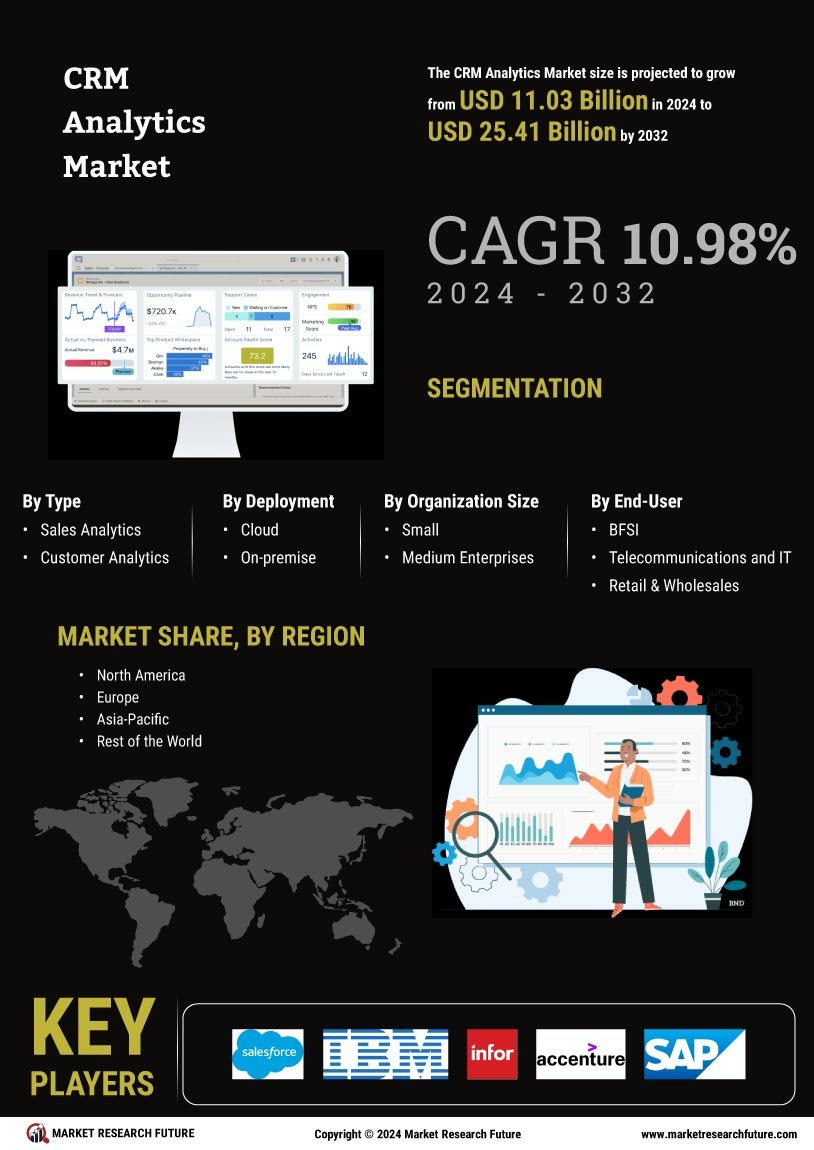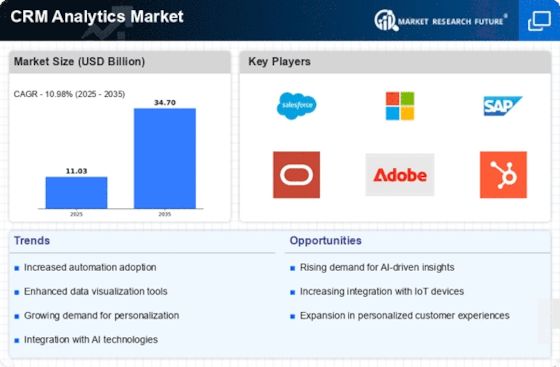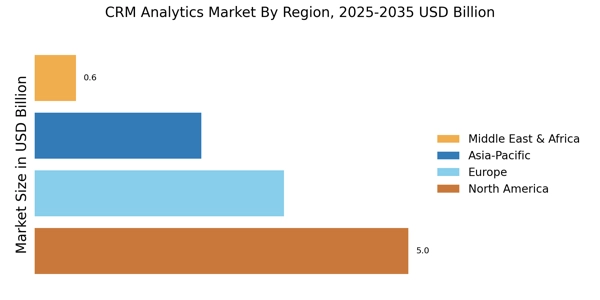Leading market players are largely investing in research and development to expand their product lines, which will help the CRM analytics market, progress even more. The launch of new products, larger-scale mergers and acquisitions, contractual agreements, and collaboration with other organizations are significant market developments in which market participants are engaging to increase their presence. The CRM analytics industry must provide affordable products if it is to grow and thrive in a more competitive and challenging market environment.
Manufacturing locally to minimize operational costs is one of the key business tactics manufacturers use in the CRM analytics industry to benefit clients and increase the market sector. In recent years, the CRM analytics industry has stipulated some of the most important medicinal benefits. Major players in the CRM analytics market, including Oracle Corporation (U.S.), Accenture PLC (Ireland), Infosys Ltd (India), Salesforce Inc. (U.S.), and others, are attempting to increase market demand by investing in research and development operations.
CapSavvy Consultants is a financial consulting organization based in Mumbai, India. Clients are advised on business strategy, debt syndication, equity fundraising, venture capital funding, financial restructuring, mergers and acquisitions, and business strategy by the firm. CapSavvy also provides virtual CFO services, corporate support services, education services, and SEZ Unit Services.
In June CapSavvy successfully empowered 100 users across multiple SMEs with its integrated CRM Software. CRM software, available in 2021, is a cost-effective option for small enterprises that helps them achieve their objectives more successfully.
To ensure internal coordination, lead management, and customer retention, CapSavvy CRM software provides a centralized data-sharing point.
Oracle Corporation is a multinational computer technology company based in Austin, Texas. Database software and technology, cloud-engineered systems, and enterprise software products such as customer relationship management (CRM) software, enterprise resource planning (ERP) software, and enterprise performance management (EPM) software are all sold by the company.
In July Oracle launched the newest edition of Oracle Fusion Sales, a sales automation technology that finds high-quality sales opportunities and leads dealers to close agreements faster.
Fusion Sales are powered by artificial intelligence (AI), which automatically offers sellers quotations, proposals, and recommended steps to help them enhance productivity, close more deals, and build buyer confidence.

















